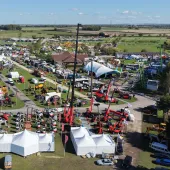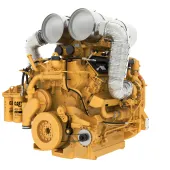CECE and CEA welcome European Parliament engines vote

European Parliament approves transitional Stage V engines deadline extension to address impact of COVID-19
LAST Friday (10 July), the European Parliament adopted a text extending by 12 months the Stage V transition deadlines for certain categories of engines to be fitted in non-road mobile machinery (NRMM) and tractors, paving the way for the final adoption and publication in the Official Journal of the amended version of Regulation (EU) 2016/1628.
European industry associations representing the NRMM sector, including the Committee for European Construction Equipment (CECE), have warmly welcomed the European Parliament support. CECE’s secretary general, Riccardo Viaggi, said: ‘The Parliament’s vote was vital to prevent further economic damage caused by the COVID-19 pandemic to our manufacturing industries and protect thousands of qualified jobs that depend on them.’
The amended legislation provides an important measure to mitigate some of the most significant disruptions in the sector caused by the COVID-19 pandemic and delivers long-awaited legal certainty on the most urgent deadlines of 2020.
In response to a joint industry request in March, the European Commission tabled a proposal in June to postpone the 30 June and 31 December 2020 deadlines for the production and placing on the market of NRMM fitted with <56kW and ≥130kW transition engines.
Mr Viaggi continued: ‘Neutral from an environmental perspective, this measure will not soften the stringency of the European legislation. Instead, it will give our industry the necessary time to install transition engines, already acquired, in machines, place them on the market and be compliant with ever more demanding requirements.’
He added that inaction would have led to unnecessary waste of raw materials and resources, in addition to the financial costs.
The revised regulation will take effect retroactively from 1 July 2020 and will be adopted automatically into UK law. The revision delays the relevant deadlines for building machines installed with transition engines from 30 June 2020 to 30 June 2021 and for placing those machines on the market from 31 December 2020 to 31 December 2021.
The problem was identified in March by the Construction Equipment Association (CEA) when the initial problems with hold-ups in the supply chain caused by COVID-19 were reported. OEM reduced-time working and factory closures followed within the next few weeks when it became certain that not all pre-Stage V engine stocks could be incorporated within completed machines by the end of June.
Rob Oliver, chief executive of the CEA, said: ‘The original rules meant that even if manufacturers had engines ready and waiting to be installed, unless they could be incorporated into the fully assembled machines by the deadline they would have to be scrapped.
‘Our senior technical consultant, Dale Camsell, did a great job as part of the industry team that worked with the European Commission and European Parliamentarians to navigate the intricacies of EU decision-making. Several official European forums had to be persuaded of the urgency of the problem and the fact that a postponement would not compromise the environmental objectives of the emission regulations.
‘In the end, the case presented by CECE and our allies in other sectors finally got the necessary legal changes over the line. This has saved manufacturers across Europe significant sums at a time when businesses have been knocked sideways by COVID-19.’
However, this may not yet be the end of the story. The deadlines for transition engines in the power categories ≥56kW and <130kW currently remain unchanged at 30 June 2021 and 31 December 2021. Industry representatives and the European Commission will be tracking the effect of COVID-19 on production and markets over the next few months to determine whether these deadlines also need to be revisited.









